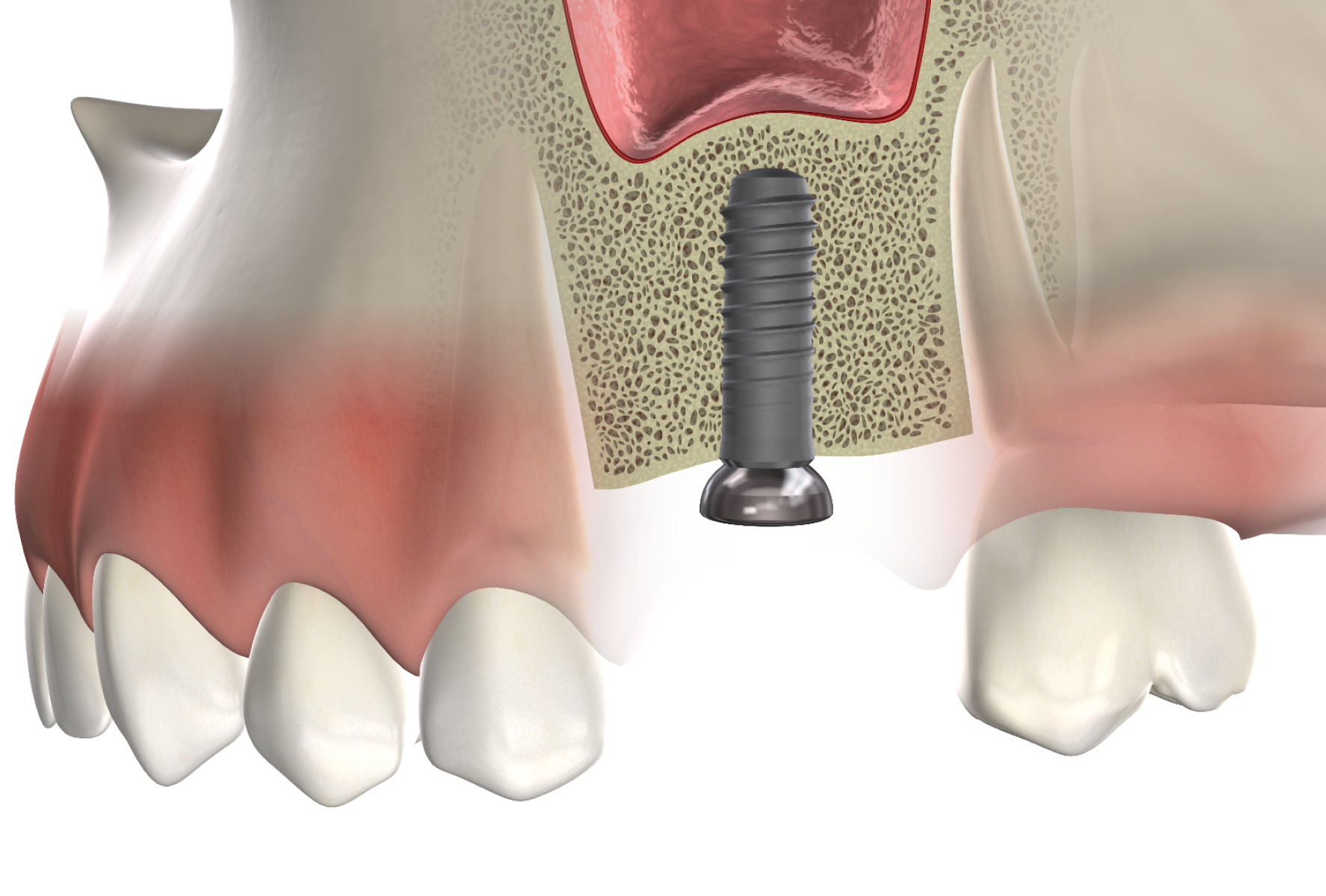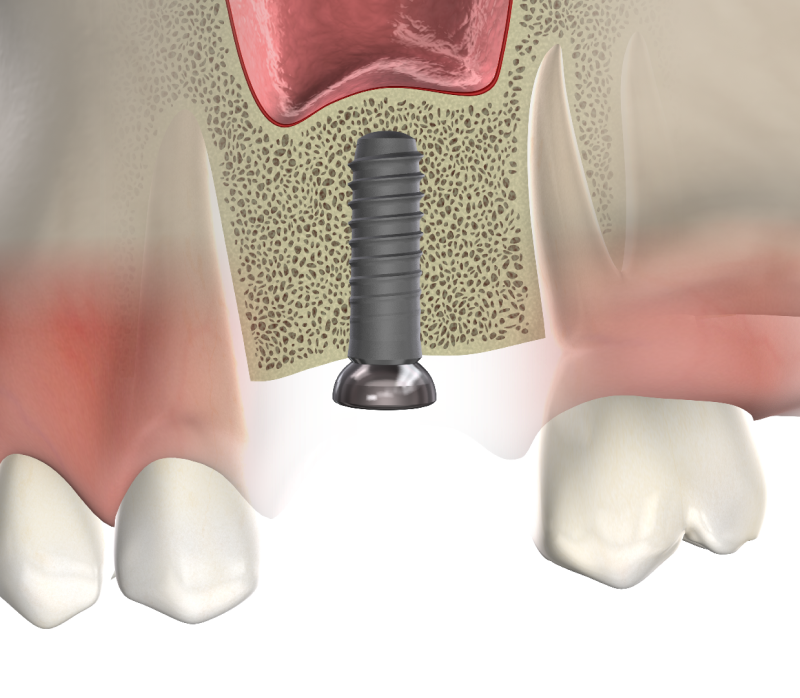Restoring Jaw Structure for Optimal Oral Health
Loss of jawbone density can occur following tooth extraction, facial injuries, or periodontal disease, potentially compromising facial structure and preventing placement of dental implants. Bone grafting performed by our oral surgeons offers an effective solution, rebuilding the necessary foundation to support tooth replacement options and restore your oral health comprehensively.
W.I.S.E. Oral Surgery & Dental Implant Specialists provides expert bone grafting procedures across our Alabama locations. Drs. Walsh and Vila, our board-eligible oral and maxillofacial surgeons, possess the specialized skill required for these delicate techniques. Contact our Trussville, Prattville, or Birmingham office to schedule an evaluation and discuss restoring your jaw structure.
How do Bone Grafts Work?
Bone grafting involves the surgical placement of specialized grafting material into an area of the jaw where bone is deficient or missing. This material acts as a scaffold, encouraging your body’s natural bone-forming cells to migrate into the site and generate new, healthy bone tissue over time.
Common sources for graft material include the patient's own bone (autograft), processed human donor tissue (allograft), specially treated animal source material (xenograft), or safe synthetic substitutes (alloplast). The primary goal is creating a solid, stable bone structure sufficient to support dental implants securely or repair skeletal defects effectively.
Types of Anesthesia
We offer several levels of anesthesia and sedation to match the procedure complexity and your personal comfort requirements:
Types of Bone Grafting Procedures We Perform
Your consultation includes a thorough evaluation, often utilizing advanced 3D CBCT imaging, allowing our surgeons to assess your specific bone volume needs accurately. This detailed planning determines the most appropriate type of bone grafting procedure for your personalized treatment plan. Comfort during the procedure is assured through various effective anesthesia options discussed beforehand.
Ridge Augmentation
This procedure rebuilds the height and/or width of the alveolar ridge (the bone supporting teeth) after significant resorption following tooth loss, creating adequate bone volume required for the stable placement of future dental implants.
Sinus Lift
Specifically performed in the upper back jaw where sinuses reside, this technique involves gently elevating the sinus membrane and placing bone graft material underneath to increase bone height, making implant placement feasible in this area.
Socket Preservation
Immediately following a tooth extraction, placing bone graft material directly into the empty socket helps prevent the significant bone shrinkage that naturally occurs. This preserves the site's dimensions optimally for easier future dental implant placement without more extensive grafting later.
Major Bone Grafting
Addressing larger defects in the jawbone resulting from severe facial trauma, congenital conditions, or previous tumor removal often requires more extensive grafting. These complex reconstructive procedures might involve harvesting bone from other areas (like the hip or skull) and are performed with expert surgical care, potentially in a hospital setting depending on complexity.
Hear From Our Patients
Frequently Asked Questions
Is bone grafting painful?
The bone grafting procedure itself is performed under appropriate anesthesia, ensuring you feel no pain during the surgery. Post-operative discomfort is expected as the site heals but is typically well-managed with prescribed pain medications and adherence to our specific aftercare instructions provided for your comfort.
Where does the bone graft material come from?
Graft material sources vary based on the specific procedure and patient needs. Options include using your own bone harvested from another site (autograft), processed bone from a human tissue bank (allograft), bone mineral from an animal source like bovine (xenograft), or biocompatible synthetic materials (alloplast). Your surgeon determines the most suitable type for your case.
How long does it take for a bone graft to heal before implants can be placed?
Healing time for bone grafts varies considerably, generally ranging from 4 to 9 months or sometimes longer. Factors like the size and location of the graft, the type of material used, and individual healing capacity influence this timeline. Your surgeon monitors healing progress, often with imaging, before confirming readiness for implant placement.
Is bone grafting always necessary for dental implants?
No, bone grafting is only required when the existing jawbone lacks sufficient height, width, or density to securely support a dental implant long-term. A thorough evaluation, including 3D imaging during your consultation, determines if grafting is necessary. Advanced implant techniques offered by our practice sometimes minimize the need for extensive grafting.
What is recovery like after bone grafting surgery?
Recovery typically involves managing swelling and discomfort with medication and cold packs, similar to other oral surgeries. Following specific dietary restrictions (soft foods initially) and gentle oral hygiene protocols outlined in your post-operative instructions is crucial for uneventful healing and protecting the graft site during the critical integration phase.
Expert Bone Grafting Across Alabama
W.I.S.E. Oral Surgery & Dental Implant Specialists delivers specialized, high-quality bone grafting procedures crucial for successful dental implant outcomes and comprehensive jaw reconstruction throughout Trussville, Prattville, and Birmingham. Trust our skilled surgeons and patient-focused approach for restoring your oral foundation. We invite you to schedule a consultation to explore your options.









